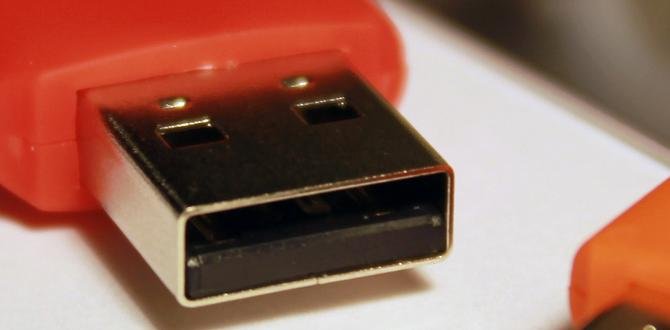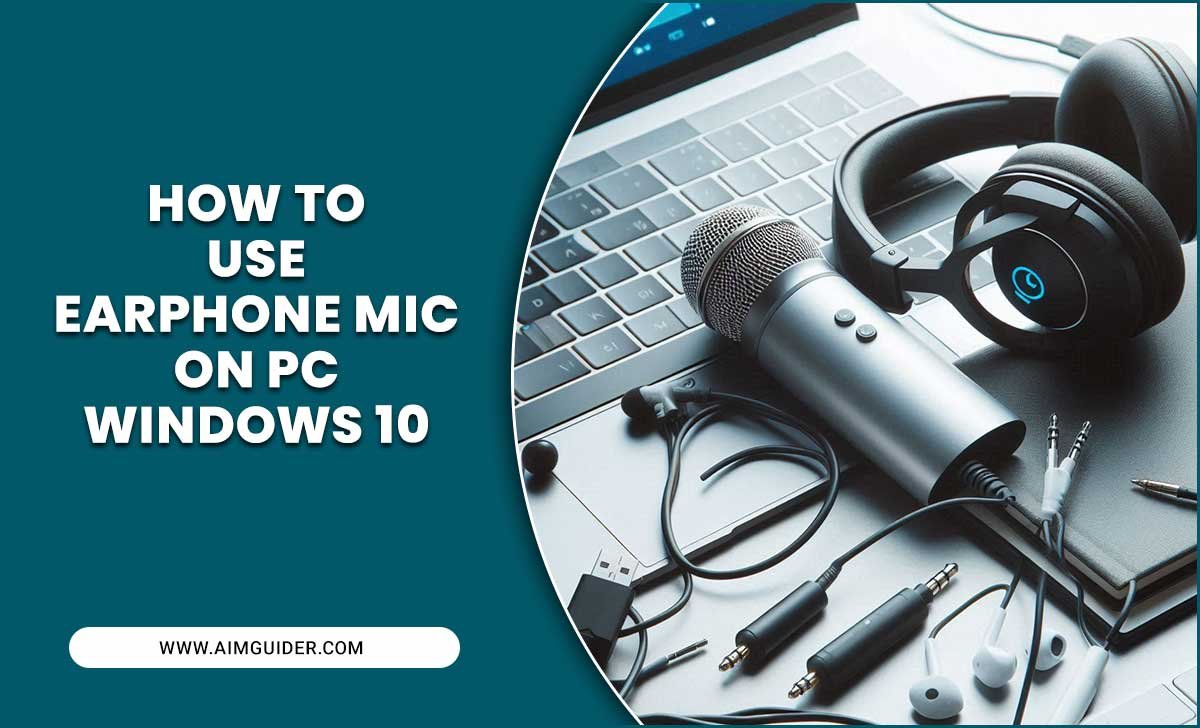Have you ever wondered why some people sound clearer on recordings than others? The secret often lies in the type of microphone they use. In the world of audio, there’s a popular debate: USB microphone vs traditional mics. Both have their fans. But which one is best for you?
Imagine you’re recording a podcast or singing into your computer. Wouldn’t you want the clearest sound possible? USB microphones plug right into your computer, making them super easy to use. They often give a great sound without needing extra tools. But, traditional microphones can also deliver awesome quality, especially in a studio setting.
Here’s a fun fact: some recording artists prefer USB microphones for their convenience. Others stick with traditional mics for their rich sound. So, what’s the right choice for your needs? Let’s dive into the differences and help you decide!
Usb Microphone Vs: Comparing Quality, Features, And Uses

USB Microphone vs.
USB microphones are popular for many reasons. They are easy to use, as you just plug them into your computer. Have you ever wanted to record your voice clearly or create a podcast? USB mics can help you achieve that. On the other hand, traditional microphones often give better sound quality for serious work. They also need extra equipment, like audio interfaces. Understanding the differences can help you choose the best one for your needs. Are you ready to make your recording dreams come true?
Audio Quality Compared
Analysis of sound quality between USB and XLR microphones. Factors affecting audio performance for each type.
When it comes to audio quality, USB and XLR microphones have different strengths. USB mics are simple and great for beginners. They plug directly into a computer. XLR mics offer better sound, especially in serious studios. They use special cables and gear. Factors that affect sound include:
- Microphone type
- Room acoustics
- Recording equipment
- Audio interface quality
Generally, XLR mics deliver richer audio, while USB mics are more convenient.
Which microphone is better for voice recording?
XLR microphones are usually preferred for professional voice recording. They provide clearer sound and more control over audio quality.
Use Cases and Applications
Best scenarios for USB microphones (podcasting, streaming). Best scenarios for XLR microphones (studio recording, music production).
USB microphones are fantastic for podcasting and streaming. They plug right into your computer, making setup a breeze — it’s almost like magic! For music lovers and studio pros, XLR microphones shine their brightest. These beauties capture every note and nuance during studio recordings, making them perfect for music production. Whether you want to chat online or create the next hit song, the right microphone makes all the difference!
| Microphone Type | Best Use Case |
|---|---|
| USB Microphone | Podcasting and streaming |
| XLR Microphone | Studio recording and music production |
Ease of Use and Setup
Simple setup process for USB microphones. Complexity of setting up XLR microphones with additional gear.
Setting up a USB microphone is like plugging in a toaster—quick and easy! You simply connect it to your computer, and voila, you’re ready to record your next hit song or podcast. On the other hand, XLR microphones are the tech-savvy cousins who love to complicate things. They need extra gear, like mixers and audio interfaces, which can make your setup feel like building a rocket ship. Talk about a headache!
| USB Microphone | XLR Microphone |
|---|---|
| Easy setup | Complex setup |
| Plug and play | Requires extra equipment |
| No extra costs | More expensive for accessories |
In the battle of convenience, USB microphones are the champion! If you want to record quickly without the fuss, they are the way to go.
Portability and Convenience
Discussing the portability of USB microphones. Comparing the transportability of XLR setups.
When it comes to USB microphones, they’re like your favorite lunchbox—easy to carry and ready to go! These mics fit snugly in your backpack, allowing you to record anywhere. On the other hand, XLR setups are more like awkward birthday cakes; they can be messy and cumbersome. You’ll need a bulky mixer and extra cables, which can feel like packing for a month-long trip. Here’s a quick look at the differences:
| Type | Portability | Convenience |
|---|---|---|
| USB Microphone | High | Plug and play! |
| XLR Setup | Low | More setup time |
In short, **portability** and **convenience** are where USB mics shine. So, if you want to record on a whim, USB is your buddy! Who wants to lug around a heavy setup anyway?
Price and Budget Considerations
Cost comparison between USB and XLR microphones. Evaluating longterm investment in audio equipment.
Buying a microphone? Let’s talk about money! USB mics are often cheaper than XLR mics. Why? USB mics are easy to use, almost plug-and-play! They are great for beginners who want to save some cash. XLR mics can cost more but offer better sound quality. Think long-term: if you want to make professional recordings, an XLR might be worth the splurge. Here’s a quick view of prices:
| Type | Average Price | Long-term Value |
|---|---|---|
| USB Microphones | $50 – $200 | Good for casual use |
| XLR Microphones | $100 – $500+ | Best for serious projects |
Remember, you might save now but spend later if you need upgrades. Evaluate your needs to avoid buyer’s remorse. It’s like buying a pet; don’t get a puppy if you’re more of a cat person! 🐶
Compatibility with Other Equipment
Devices that work well with USB microphones. Equipment required for XLR microphones and implications for users.
USB microphones are very easy to use. They connect directly to computers, tablets, and some smartphones. This means they work well with:
- Computers (Windows and Mac)
- Tablets
- Smartphones (with adapters)
XLR microphones need more equipment. They connect to a mixer or an audio interface. These extra tools help control sound better. So, if you want better sound quality, you may need to invest in more gear. Consider your needs before choosing!
Are USB microphones compatible with all devices?
USB microphones work well with most computers, tablets, and some smartphones. Always check compatibility before buying.
Recommendations for Specific Audiences
Suggestions for content creators and podcasters. Recommendations for musicians and audio engineers.
If you’re diving into content creation or podcasting, a USB microphone can be your best friend. It’s user-friendly and plugs straight into your computer, making it perfect for beginners. For musicians and audio engineers, the choice might lean more towards traditional microphones. They often offer richer sound quality. Your choice really depends on your needs.
| Audience | Recommendation |
|---|---|
| Content Creators | USB Microphones like the Blue Yeti give great sound without a fuss. |
| Podcasters | Try the Audio-Technica ATR2100; it’s reliable and won’t break the bank. |
| Musicians | The Shure SM58 is a classic! It’s built like a tank. |
| Audio Engineers | Condenser Microphones like Neumann TLM 103 provide professional-grade sound. |
Whatever you choose, remember that sound is key! It can turn a good song into a hit or a podcast into a must-listen. Choose wisely, and may your audio adventures be epic!
Conclusion
In summary, USB microphones are easy to use and great for clear sound. They plug directly into your computer, making setup simple. If you’re recording at home or streaming, they’re a smart choice. Explore different options online and read reviews to find the best fit for you. Start recording your voice today!
FAQs
Sure! Here Are Five Related Questions On The Topic Of Usb Microphones:
Sure! USB microphones are easy to use. You just plug them into your computer. They help you record clear sounds. You can use them for singing or chatting with friends. They are great for making videos too!
Sure! Please share the question you would like me to answer.
What Are The Primary Advantages Of Using A Usb Microphone Over An Xlr Microphone For Recording Purposes?
USB microphones are easy to use. You can plug them directly into your computer without needing extra tools. They are usually cheaper than XLR microphones. You don’t need a special mixer or audio interface, making them great for beginners. This means you can start recording quickly and have fun!
How Does The Audio Quality Of A Usb Microphone Compare To That Of A Traditional Studio Microphone?
A USB microphone connects directly to your computer. It’s easy to use and sounds good for most things like video calls and podcasts. A traditional studio microphone usually has better sound quality. It captures more detail, making it great for music and professional recordings. So, USB mics are good for everyday use, while studio mics are best for serious work.
What Features Should One Look For When Choosing A Usb Microphone For Podcasting Or Streaming?
When choosing a USB microphone for podcasting or streaming, you should look for a few important features. First, make sure it has good sound quality so your voice sounds clear. Next, check if it has a sturdy stand or is easy to mount. You also want a microphone that is easy to set up and use. Lastly, consider if it has a mute button for times when you don’t want to be heard.
Can Usb Microphones Be Used For Professional Music Recording, Or Are They Better Suited For Casual Projects?
Yes, USB microphones can be used for professional music recording. They are easy to connect to computers. Many musicians use them for high-quality work. However, some professionals prefer other types of microphones for more control. It really depends on what you want to do!
How Do Usb Microphones Interact With Different Operating Systems And Recording Software?
USB microphones work with computers and tablets by plugging into a USB port. You can use them with different operating systems, like Windows or macOS. When you connect the microphone, your device usually recognizes it right away. Most recording software will let you choose the USB microphone as your sound source. This makes it easy for you to record your voice, music, or sounds.








